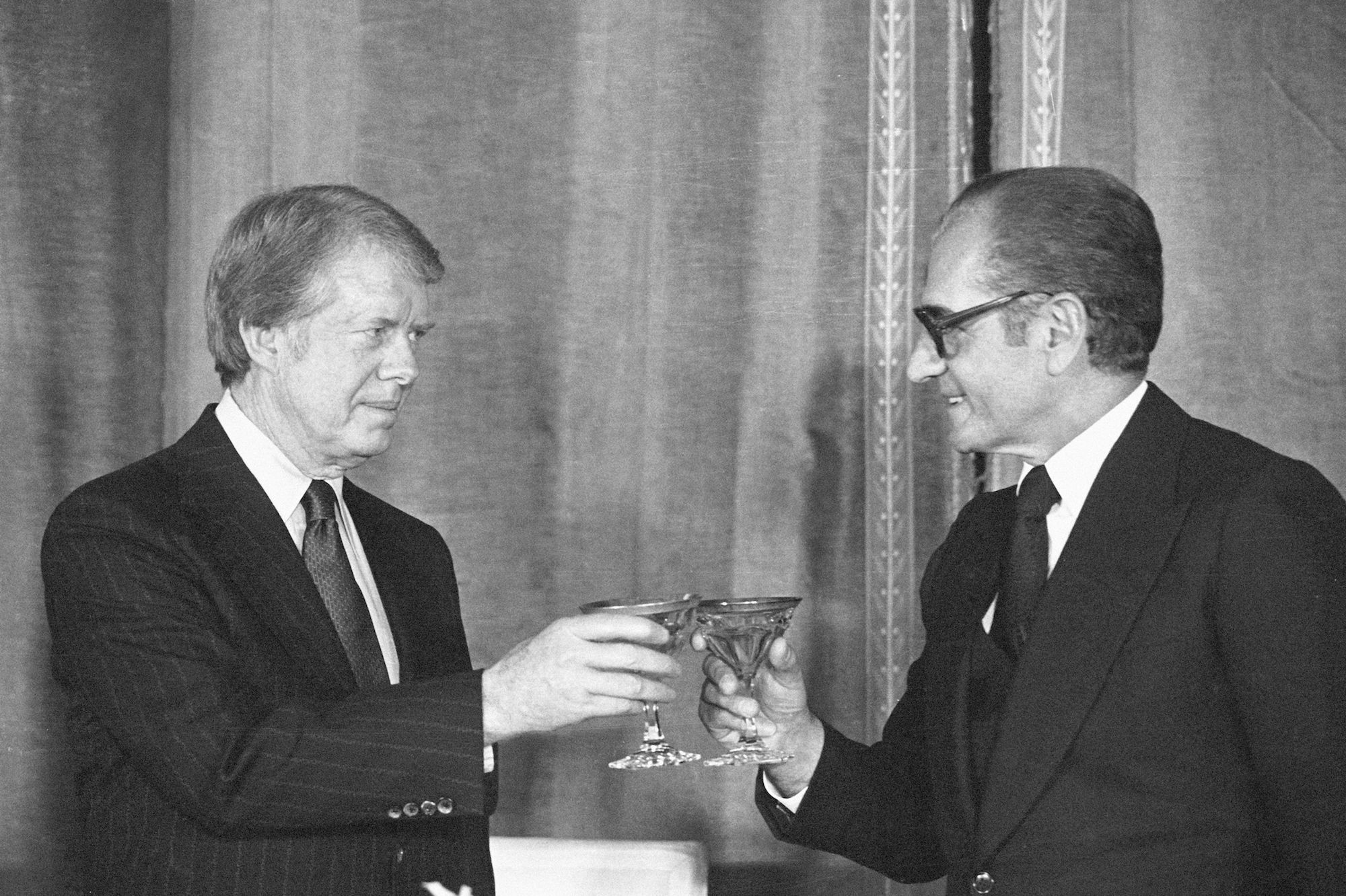
Jimmy Carter will almost certainly be remembered as a liberal lion. That reputation, however, stems from his post-presidential work with Habitat for Humanity and his role attempting to mediate peace in the Middle East and elsewhere. His affable manner and trademark smile contributed to that impression.
But Carter’s leading role was as President. Personal rebranding and the haze of history have obscured the fact that the peanut farmer from Plains, Georgia was conservative. As a right-wing “New Democrat,” he ushered in a radical shift of his party from champions of the working class and skeptics of foreign interventionism to the bellicose defenders of big business currently occupying the White House.
Domestically, Carter was notable primarily for what he did not do. His inactions invariably leaned left.
Carter became the first Democratic president not to propose an anti-poverty bill since the realignment that brought FDR to power in 1932. A deficit hawk more concerned about inflation than unemployment, he broke his 1976 campaign pledge to push for a national healthcare plan. He considered, but rejected, proposals from fellow Democrats for a universal basic income and increasing welfare benefits. Though he personally favored and campaigned for decriminalizing cannabis, he backtracked and allowed the brutal War on Drugs to continue.
Empathetic statements bemoaning the ills and injustices of late-stage capitalism in the post-Vietnam era of deindustrialization, coupled with executive dithering, set the template for Clintonism: liberal rhetoric on the stump, conservative laissez faire in reality.
“Fundamentally, Jimmy Carter ended the New Deal and started America on the path of pushing wealth and power upward, a path dramatically accelerated by his successors,” Matt Stoller, author of “Goliath: The 100-Year War Between Monopoly Power and Democracy,” told The Washington Post. “As just one simple example, one reason Americans today can’t sue airlines for consumer protection or safety violations is airline deregulation, passed in 1978 and signed by Jimmy Carter. Carter cut capital gains taxes in 1978, and under the term ‘deregulation,’ removed public rules from the banking, telecommunications, railroad, trucking, natural gas and airline industries.”
Carter was a man of peace—technically. He didn’t start any wars. He talked about human rights in international affairs, criticizing America’s coddling of dictators. He distanced the U.S. from apartheid-era South Africa and Nicaraguan dictator Anastasio “Tachito” Somoza. And he negotiated a peace deal between Israel and Egypt.
But his foreign policy hawkishness made the world more dangerous. The president’s highflying rhetoric was full of “built-in hypocrisy,” Foreign Policy magazine’s Jonathan Alter observed in 2020. “The president’s new policy was selective and inconsistent from the start, especially as applied to strategically important allies. Vital interests took priority over moral ones, most fatefully in the case of Iran, where Carter toasted the shah and raised the abuses of his secret police only in their private meetings. When the shah was driven from power in 1979 by the Ayatollah Ruhollah Khomeini, Carter’s support for the monarch led to the seizure of U.S. hostages in Tehran.”
Carter’s anti-communist national security advisor Zbigniew Brzezinski encouraged him to arm the radical Islamist mujahedin in Afghanistan, drawing the Soviet Union into a proxy war that helped set the stage for 9/11. He used the Soviet invasion as an excuse to politicize the 1980 Olympics by boycotting the Moscow games. In a transparently ridiculous attempt to look tough he restored draft registration, which remains in force despite the all-volunteer military.
And it was Carter who started the giant defense spending spree of the 1980s credited to Ronald Reagan. There may not have been any cash for infrastructure or healthcare or poverty, but when it came to nuclear saber-rattling against the Soviets, money was no object. “I am committed as a matter of fundamental policy to continued real increases in defense,” Carter told Congress in his 1980 State of the Union address. Reagan later acknowledged Carter’s massive defense spending. “My predecessor had proposed a five-year expansion of the defense budget,” Reagan said in 1986.
By 1979 the liberal voting base of the Democratic Party had had enough of Carter’s rightward shift. And then they had their champion: Massachusetts Senator Ted Kennedy challenged Carter from the left in the 1980 primaries, “trying to run on sort of FDR-type policies, the old-style liberalism, you know, trying to be a populist,” said journalist Jon Ward, author of a book about that race.
Kennedy’s defeat was fateful. 1980 marked the rise of the centrist-right Third Way/Democratic Leadership Council control over the Democratic Party apparatus, which went unchallenged until Bernie Sanders in 2016. Clinton continued Carter’s aggressive foreign policy and embraced right-wing domestic projects: NAFTA, the crime bill, welfare reform. Obama perfected Carter’s style, controlled and measured and calm in an effort to deliver a vaguely liberal impression rarely reflected by his policy decisions.
Carter is considered to be a great ex-president, mainly because his post-1981 life of humanitarian service contrasts with his presidential reputation as an incompetent, vision-free micromanager. But Carter did have a vision, one that was consequential if ignored. He sucked the liberalism out of the Democratic Party, rendering the American Left homeless, marginalized and alienated within electoral politics as the country spiraled into a half-century of rightward decline with no end in sight.
(Ted Rall (Twitter: @tedrall), the political cartoonist, columnist and graphic novelist, co-hosts the left-vs-right DMZ America podcast with fellow cartoonist Scott Stantis. You can support Ted’s hard-hitting political cartoons and columns and see his work first by sponsoring his work on Patreon.)

